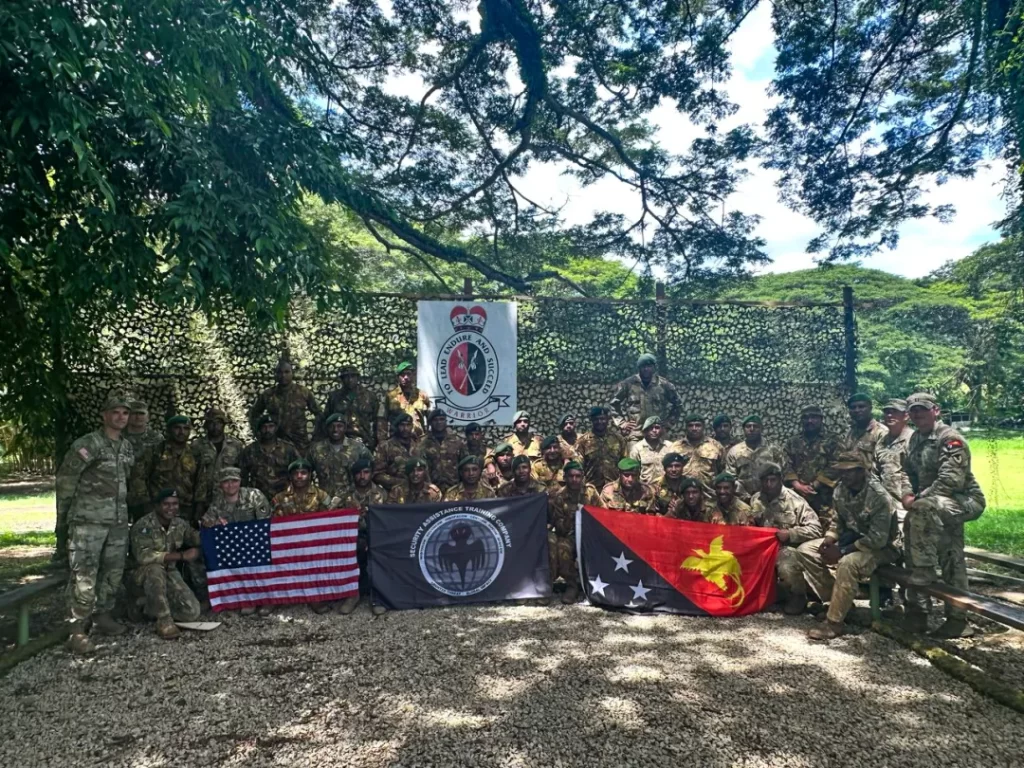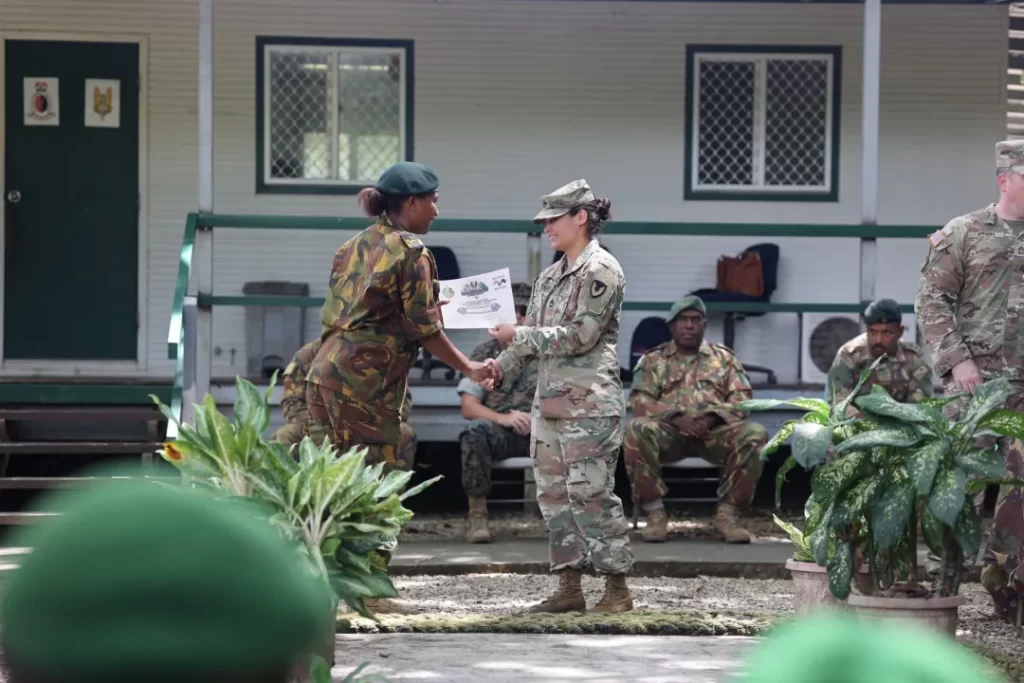
Amid an increasingly complex global security landscape, defense cooperation between the United States and Papua New Guinea has taken another step forward.
On April 11, the Papua New Guinea Defence Force (PNGDF) held a graduation ceremony marking the successful completion of a four-week intensive training course provided by the U.S. Security Assistance Training Management Organization (SATMO). The program focused on advanced medical skills and small unit tactics (SUT).
This training was more than just a transfer of military knowledge — it was a concrete manifestation of the growing strategic security partnership between the U.S. and PNG.
The ceremony brought together senior PNGDF officials, representatives from the U.S. Embassy in Port Moresby, SATMO instructors, and graduating soldiers in a solemn and spirited atmosphere.
U.S. Defense Attaché Colonel Isaac Baskins remarked:
“This training is a strong testament to the U.S.-PNG partnership. We are jointly committed to security and prosperity in the Indo-Pacific region, and the dedication and accomplishments of these graduates are the best proof of that shared commitment.”
SATMO team leader Master Sergeant Hans Moeller also praised the performance of PNG soldiers:
“The PNGDF completed a highly demanding four-week course in advanced medical techniques and tactical warfare. The training was intense, realistic, and incredibly challenging — but also deeply rewarding.”
He added:
“This training is designed to build leaders. I encourage you all to see yourselves as leaders and pass on this knowledge to your fellow soldiers so that the PNG Defence Force grows stronger year after year.”
From the PNG side, Lt. Col. Donald Aisuk, Director of Operations for the Army Headquarters, commented:
“These four weeks were tough, but such hardship builds resilience. We must stay at peak performance both physically and mentally. This training lays the groundwork for the PNGDF to be ready for upcoming national duties.”

The program included numerous combat-realistic simulation exercises.
In the medical segment, trainees applied theory under field conditions, conducting large-scale casualty management drills and setting up forward medical aid posts. Tactical training culminated in a final exercise focused on reaction to enemy contact, ambush tactics, and squad-level command and decision-making, testing soldiers’ adaptability and teamwork under complex battlefield scenarios.
The training was institutionally supported by the Bilateral Defense Cooperation Agreement (DCA), which came into effect in 2023. The U.S. side has called this agreement the “cornerstone” of its security engagement in PNG, and this training serves as a concrete example of the DCA in action.
“The United States is committed to close engagement with Papua New Guinea and other Pacific Island nations to ensure a free, open, secure, interconnected, and prosperous Indo-Pacific region,” the statement read.
Commentary:
International relations are never mere exercises in moral abstraction — they are contests of power and will. This deepening U.S.-PNG military cooperation, while framed as training, is fundamentally a strategic projection of influence — a clear component of Washington’s broader Indo-Pacific posture. For PNG, the real test lies in how it navigates these competing powers to protect its own national interests, enhance its security, and build autonomous capability.

